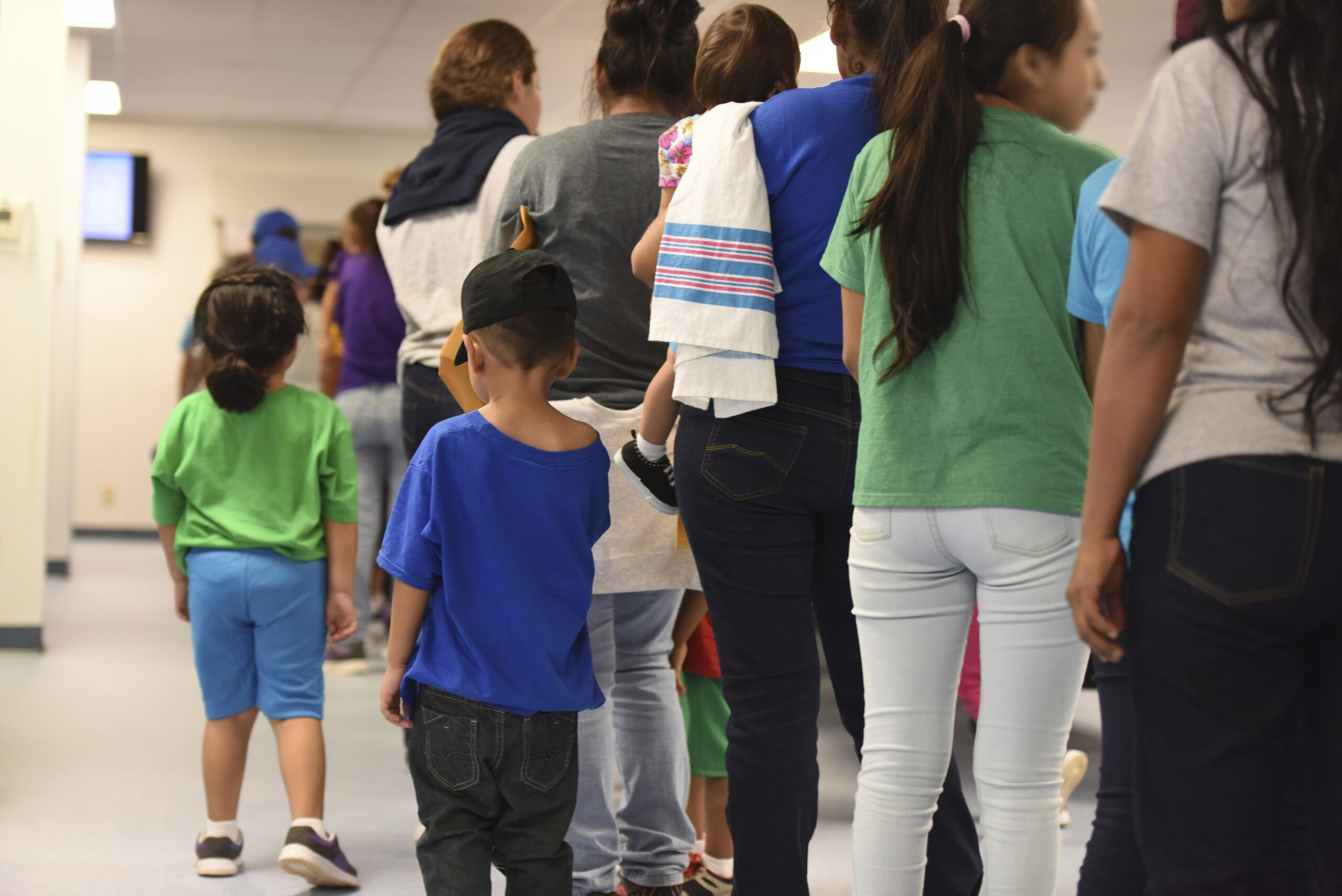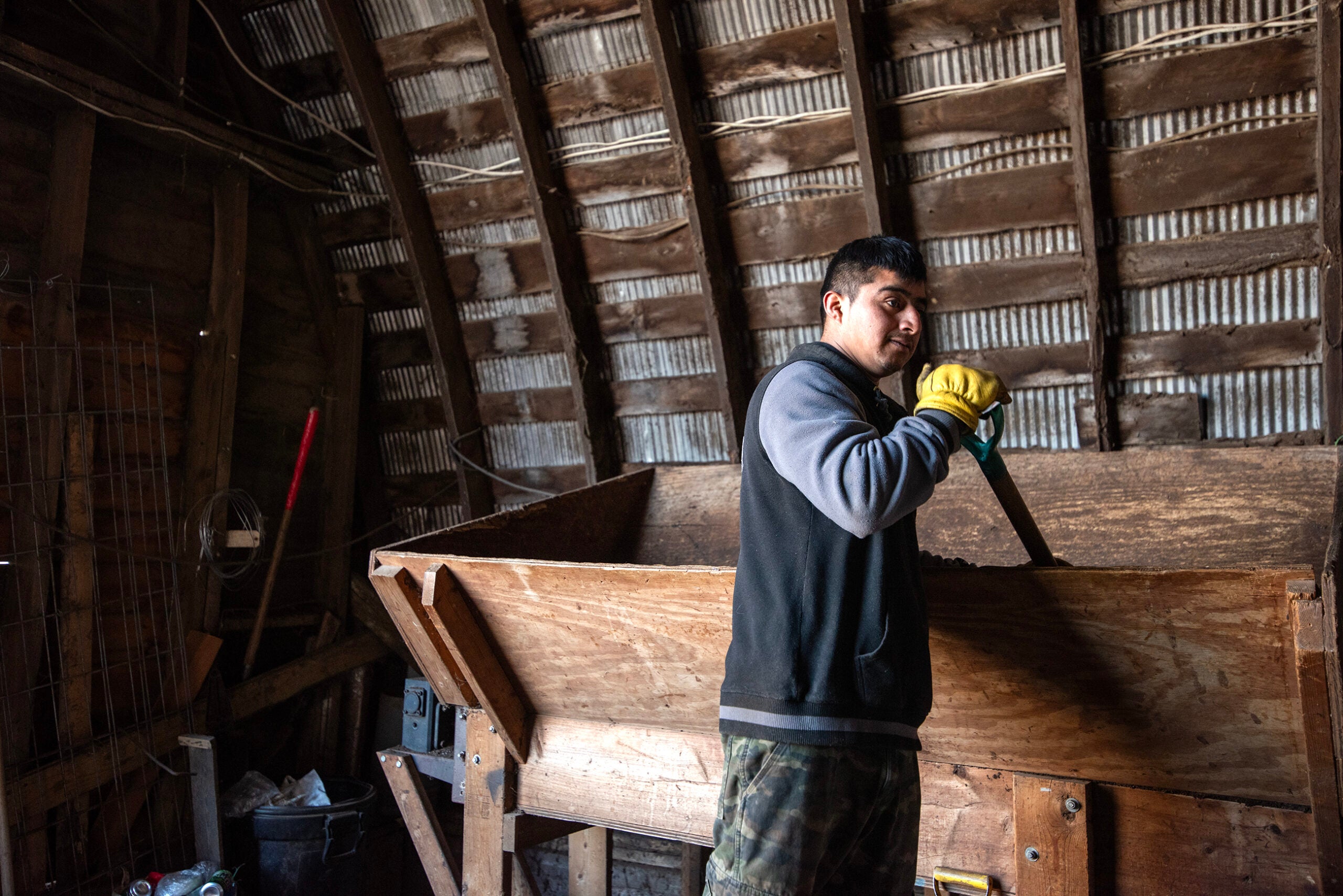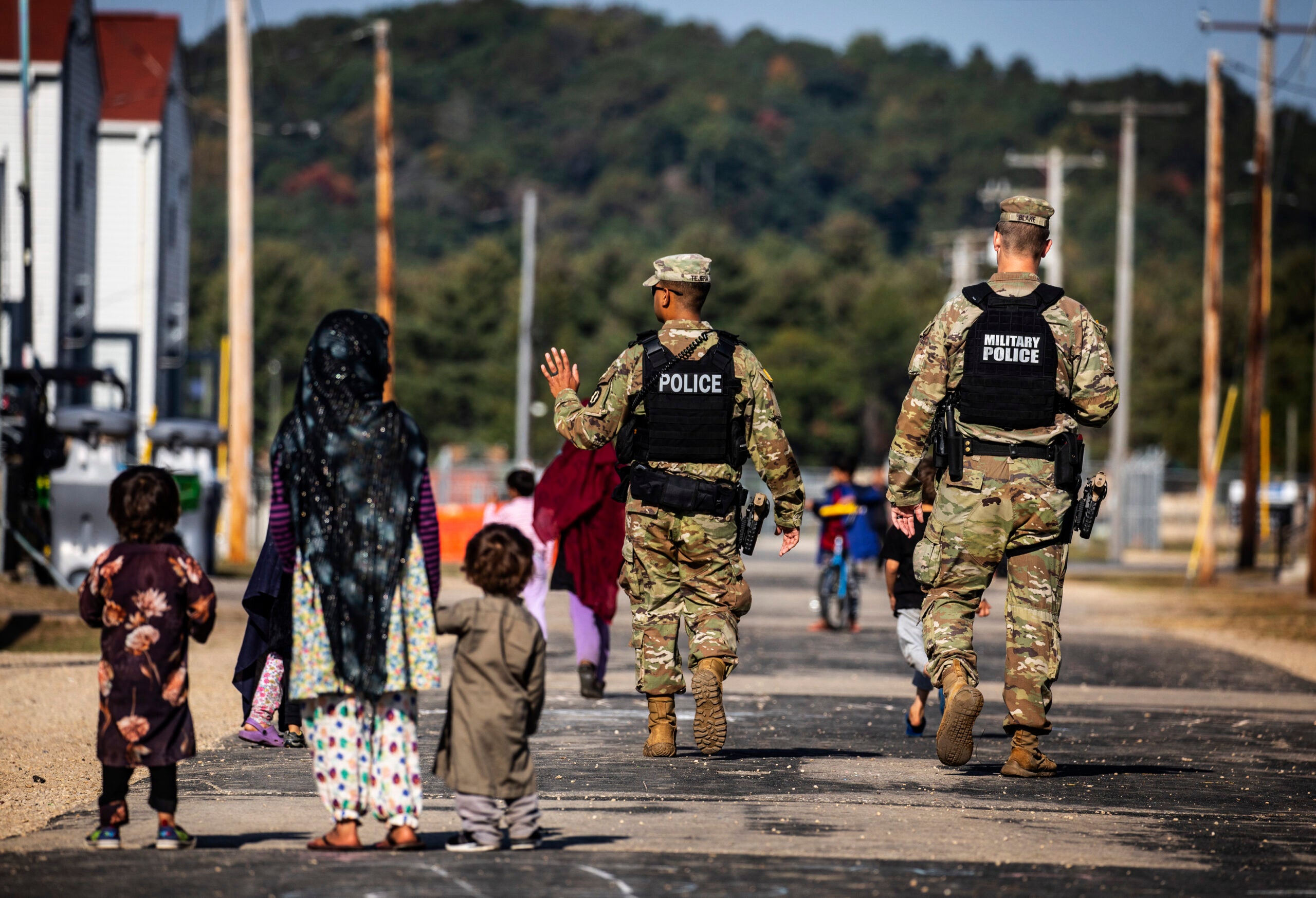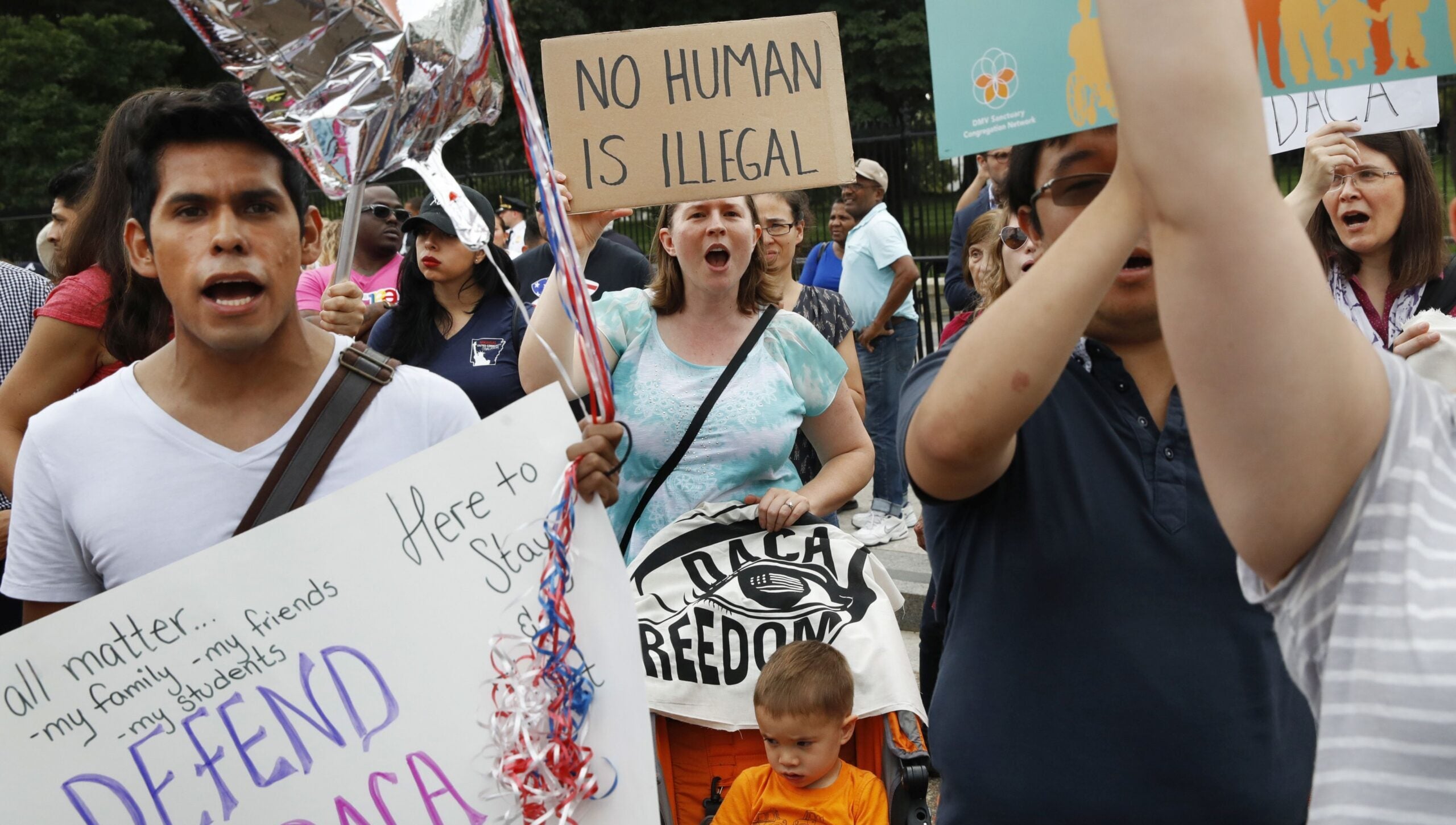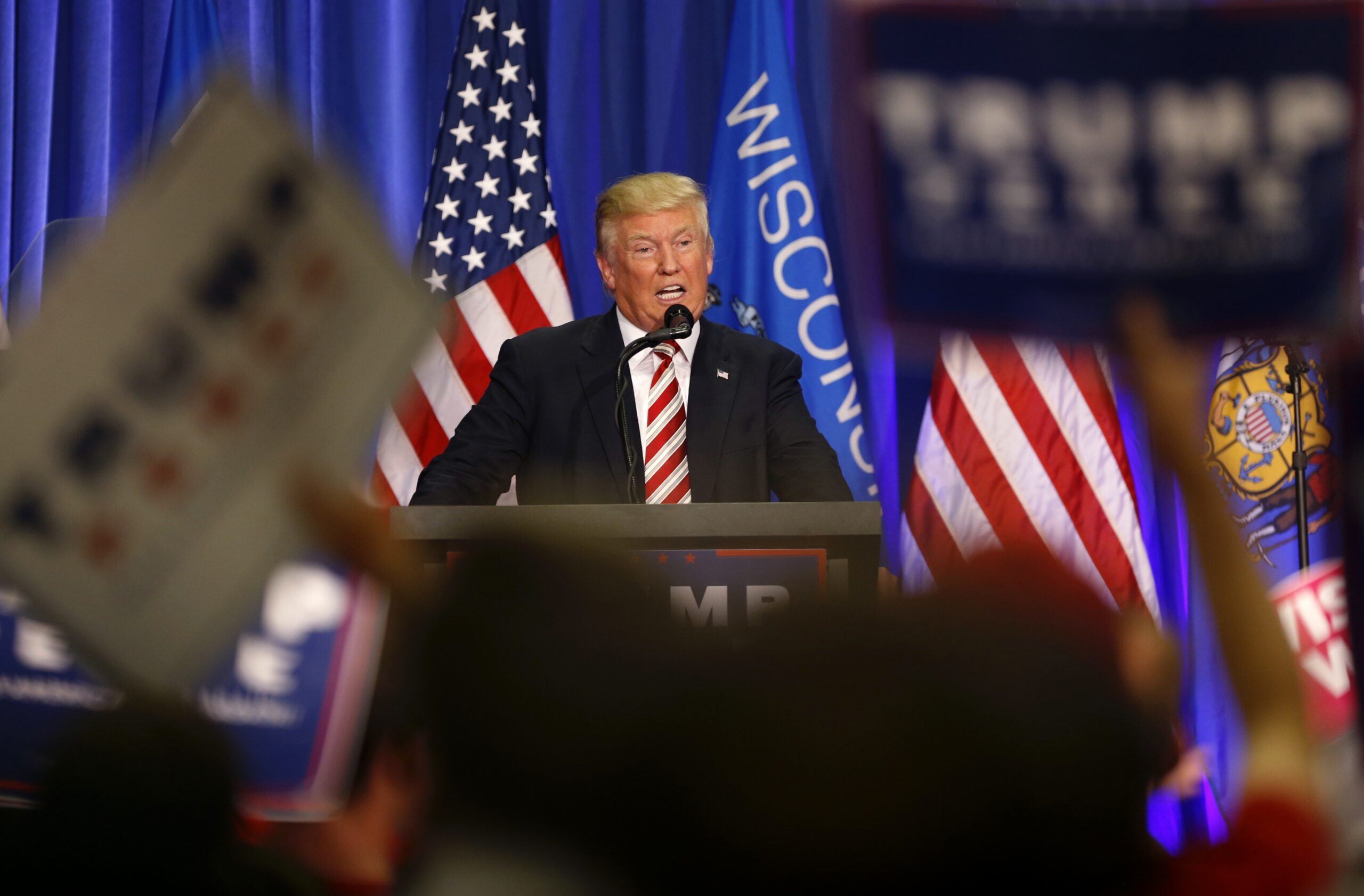Wisconsin has had more than its share of campaign visits this year, but there’s been just one to Prairie du Chien, a community of about 5,500 residents along the Mississippi River.
This was no accident. As former President Donald Trump addressed supporters from a high school gymnasium, he spoke in front of a posters of mug shots, including one showing the face of a non-citizen who was recently arrested in Prairie du Chien on multiple felony charges.
During the visit, Trump told the crowd that “every state is a border state.” He accused President Joe Biden and Vice President Kamala Harris of enabling illegal immigration. And he tied the issue to violent crime, despite multiple studies showing immigrants are less likely to commit crimes than native-born Americans.
Stay informed on the latest news
Sign up for WPR’s email newsletter.
“I will liberate Wisconsin from this mass migrant invasion of murderers, rapists, hoodlums, drug dealers, thugs and vicious gang members,” Trump said.
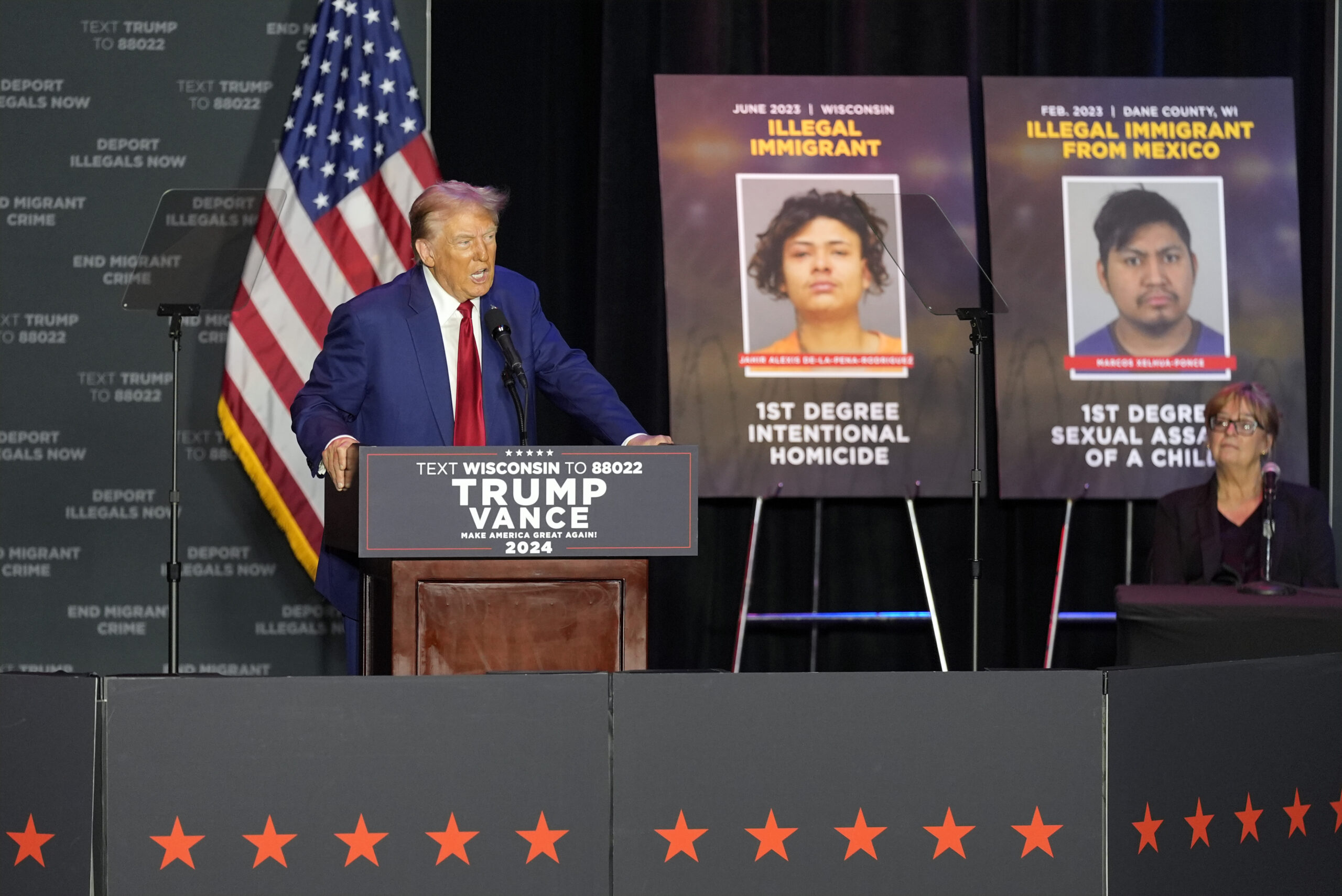
In Wisconsin, Republicans are far more likely than Democrats to rank immigration as a top issue, according to a recent survey of registered voters from the Marquette University Law School. And though Wisconsin is more than a thousand miles from the U.S.-Mexico border, immigration has emerged as one of the top issues between Trump and Harris.
Trump’s rhetoric has escalated in 2024 campaign
Trump’s calls for tougher immigration enforcement have been mainstays of his campaigns for president. In 2016, he famously promised to build a wall along the U.S.-Mexico border.
This year, his rhetoric has escalated. Throughout his campaign, Trump has referred to some immigrants as “animals” and accused them of “poisoning the blood of our country.” That phrase has drawn criticism for echoing language about “blood poisoning” in Adolf Hitler’s Mein Kampf.
Christine Neumann-Ortiz, director of the immigrants rights group Voces de La Frontera, says it’s a corrosive pattern.
“In the same way the Jews were being scapegoated in World War II, Trump and his followers are scapegoating immigrants today,” she said in an interview with WPR. “Is it dangerous? You bet it is.”
Trump regularly invokes anecdotes about immigration and crime. But despite some high-profile individual cases, University of Wisconsin-Madison sociologist Michael Light says research shows increased immigration is not tied to higher crime rates.
“Criminologists have been studying the issue of immigration and crime for over a century and, generally speaking, what we find is that immigrants tend to have lower crime rates than native-born U.S. citizens,” he said. “It’s a fairly consistent finding.”
Light says recent studies suggest that pattern holds true, whether an immigrant is here legally or illegally.
“Obviously, undocumented immigrants do commit crimes,” he said. “But the question is, is that level of criminality higher than for other groups? And, generally speaking, the research that we have suggests no.”
‘People are tired of the hate’
Across the state on a sunny Saturday afternoon in Milwaukee, music from a neighborhood festival filled the streets. But more than a dozen volunteers were hard at work inside a small office.
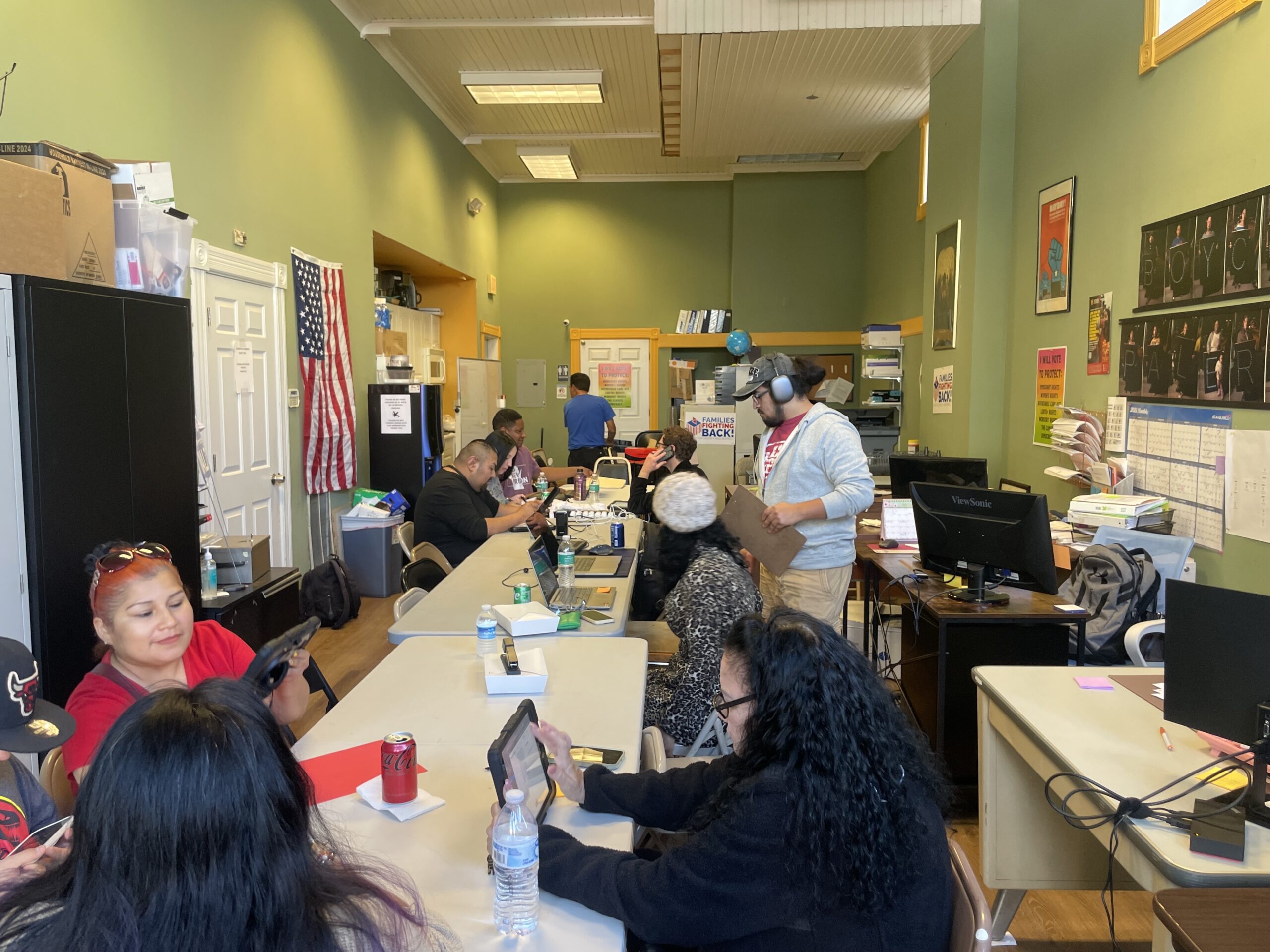
They were making calls and sending text messages in English and Spanish on behalf of Voces de La Frontera. The group’s political director, Jarrett English, said they’ve reached thousands of Wisconsin voters, urging them to support Harris for president and Democratic U.S. Sen. Tammy Baldwin in her re-election bid against Republican Eric Hovde.
“The vast majority of our (voter) IDs are in support of Kamala Harris and … candidates that you know that are pro-immigrant, pro humanity,” he said. “People are tired of the hate, they’re tired of the rhetoric, they’re tired of people who work hard to come and have a better life being scapegoated.”
Harris has emphasized her support for a bipartisan border proposal which would have included more funding for the border patrol as well as anti-fentanyl enforcement.
During a debate this fall, she blasted Trump for lobbying against that package, which ultimately went nowhere in Congress.
“Donald Trump got on the phone, called up some folks in Congress and said, ‘Kill the bill,’” Harris said during the debate which was hosted by ABC News. “And you know why? Because he’d prefer to run on a problem instead of fixing a problem.”
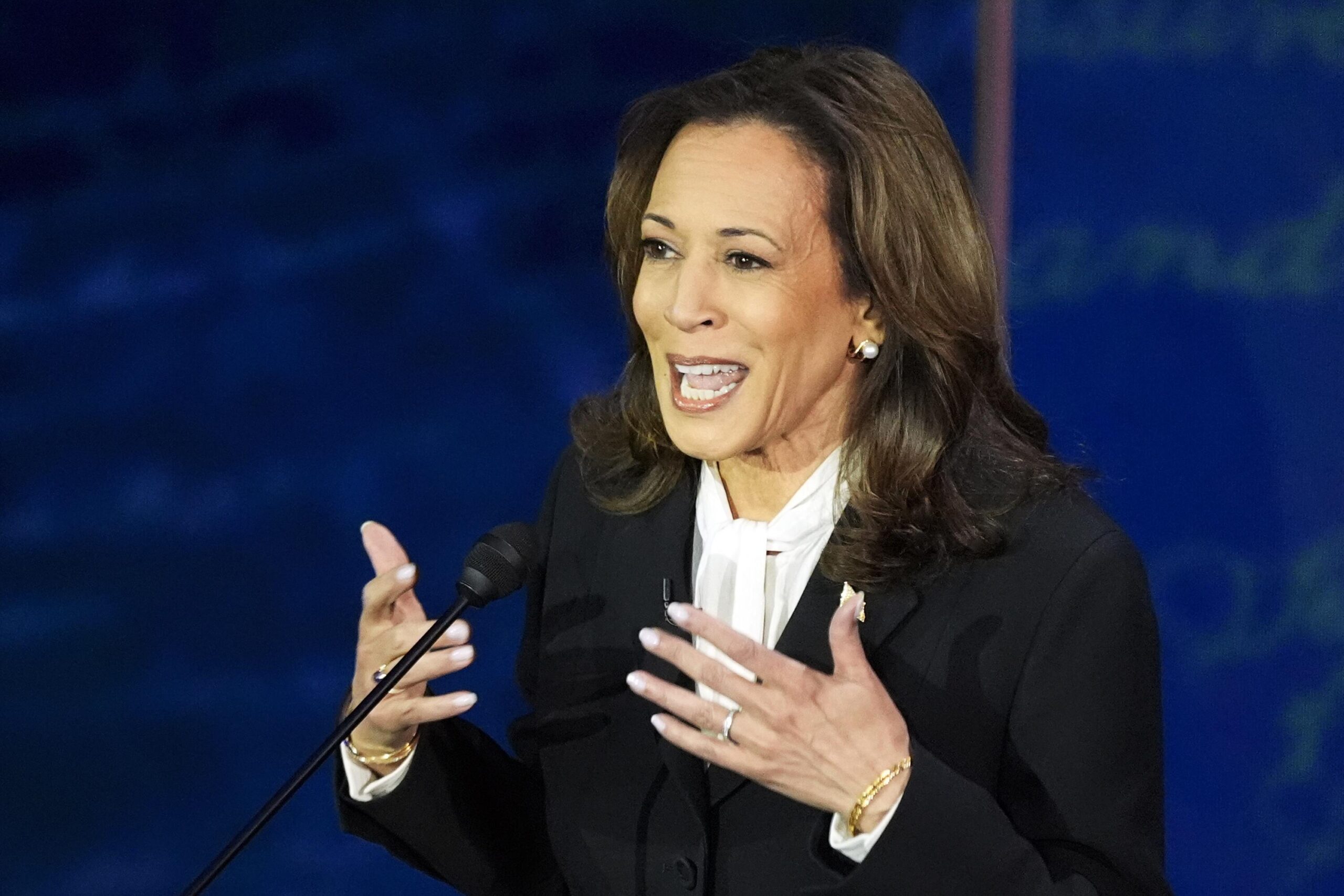
Harris says she supports an “earned pathway to citizenship” for people who already live in the U.S. And, during the debate, she highlighted her law enforcement background as someone who formerly worked as a district attorney and as California’s attorney general.
“I’m the only person on this stage who has prosecuted transnational criminal organizations for the trafficking of guns, drugs and human beings,” she said, adding that the stalled immigration bill would have allocated more federal resources for prosecuting such organizations.
Since President Biden took office in 2021, unauthorized border crossings reached a record high of of nearly 2.5 million in 2023, according to federal data about the number of people apprehended by border patrol agents for trying to cross between official ports of entry. Those numbers have fallen in 2024 after the Biden administration cracked down on eligibility for asylum claims.
University of Wisconsin-La Crosse Political Science Professor Anthony Chergosky says Harris’s political response has included more right-leaning rhetoric and her visit last month to the southern border. Still, he thinks the issue puts Harris and her Democratic running mate, Minnesota Gov. Tim Walz, at a disadvantage.
“I don’t think the Harris-Walz ticket is trying to win the issue of immigration and border security,” Chergosky said. “I think they’re trying to reduce the Republican advantage.”
Agricultural industry worries about promised mass deportations
A cornerstone of Trump’s immigration platform has been his promise to carry out the largest deportation in U.S. history.
That has raised alarm bells from agricultural industry groups, including the right-leaning Wisconsin Farm Bureau Federation and the left-leaning Wisconsin Farmers Union.
Tyler Wenzlaff, a lobbyist for the Wisconsin Farm Bureau Federation, says mass deportations would worsen a labor supply shortage.
“This is especially true in dairy farming, because it requires yearlong labor,” he said. “It’s a 24/7, 365 industry.”
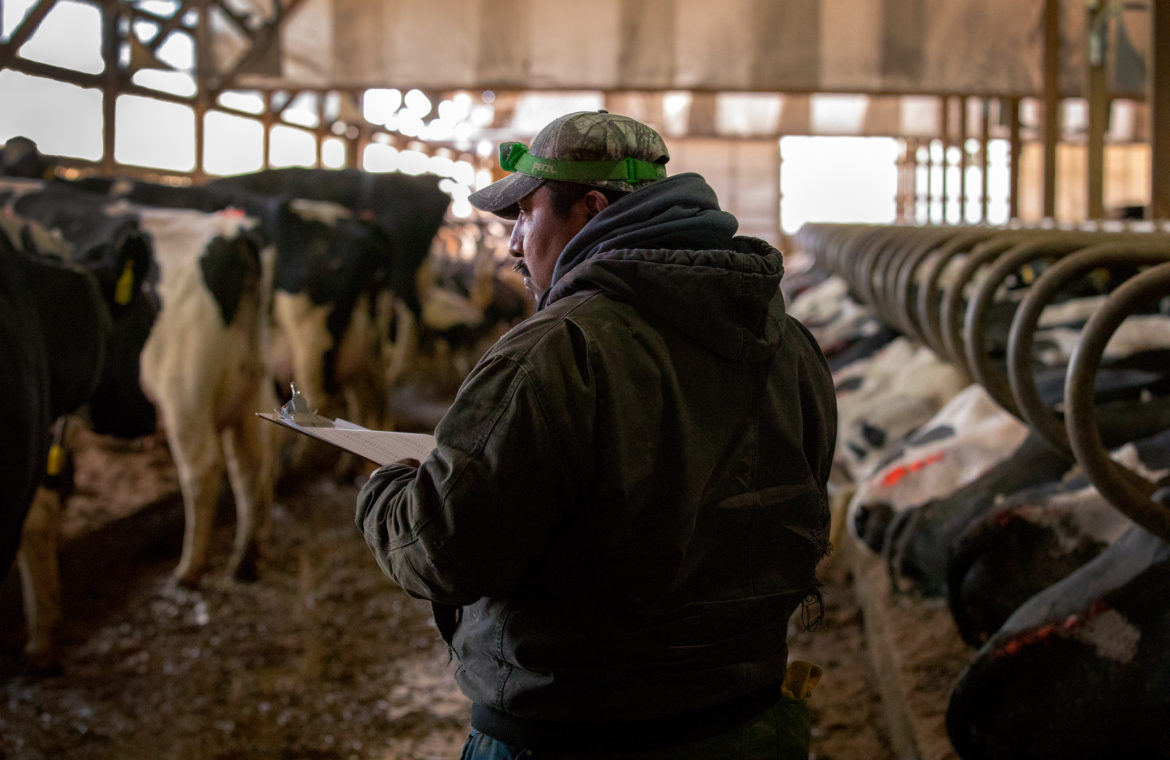
According to one survey from the School for Workers at the UW-Madison, thousands of immigrant workers without legal residency perform an estimated 70 percent of the labor on Wisconsin dairy farms.
Tina Hinchley, a dairy farmer in Cambridge, says the industry would be “crushed” without their contributions.
“They are necessary for us to have America’s Dairyland,” she said. “If we did not have these people that work tirelessly on our farms and care about our cows and work alongside us, just like family members, we would not be able to do what we’re doing.”
Trump has repeatedly accused immigrants of taking jobs from native-born Americans, but Hinchley said that doesn’t reflect reality.
“There is not enough help in our rural communities,” Hinchley said. “There is not enough people that want to get up at four in the morning and work all day around cows.”
Hinchley also serves on the board of the Wisconsin Farmers Union. Although group is not endorsing a presidential candidate, Hinchley says she personally supports Harris, and she’s appeared in a pro-Harris campaign ad.
If he’s elected, Trump has pledged to revive a program known as Title 42, which restricted immigration on public health grounds, and to restore a policy requiring migrants to wait in Mexico while their asylum cases are pending. He’s also said he would end birthright citizenship for children born in the U.S. to parents who are in the country illegally — a pledge that has raised constitutional concerns.
GOP voters driving the focus on immigration
On the day of Trump’s rally in Prairie du Chien, area resident Kevin Johll said he believes the former president is the right person to get the country “back on track” by ensuring strong border security.
“We want people to come to the country,” he said while standing in line before Trump’s speech. “We want them to do it legally. You know, there’s laws and orders in this country.”
Biden had previously tasked Harris with addressing the “root causes” of migration, and Trump’s campaign has emphasized her relationship to border security by labeling her as Biden’s “border czar.”
Wisconsin voter Frank Walterscheit, who lives in the Poynette area, said he hasn’t been impressed by how Harris has “flip flopped” on border security.
“She’s the one that created this mess, so I don’t know how she’s gonna fix it,” said Walterscheit. “She’s had three-and-a-half years, and she hasn’t done anything.”
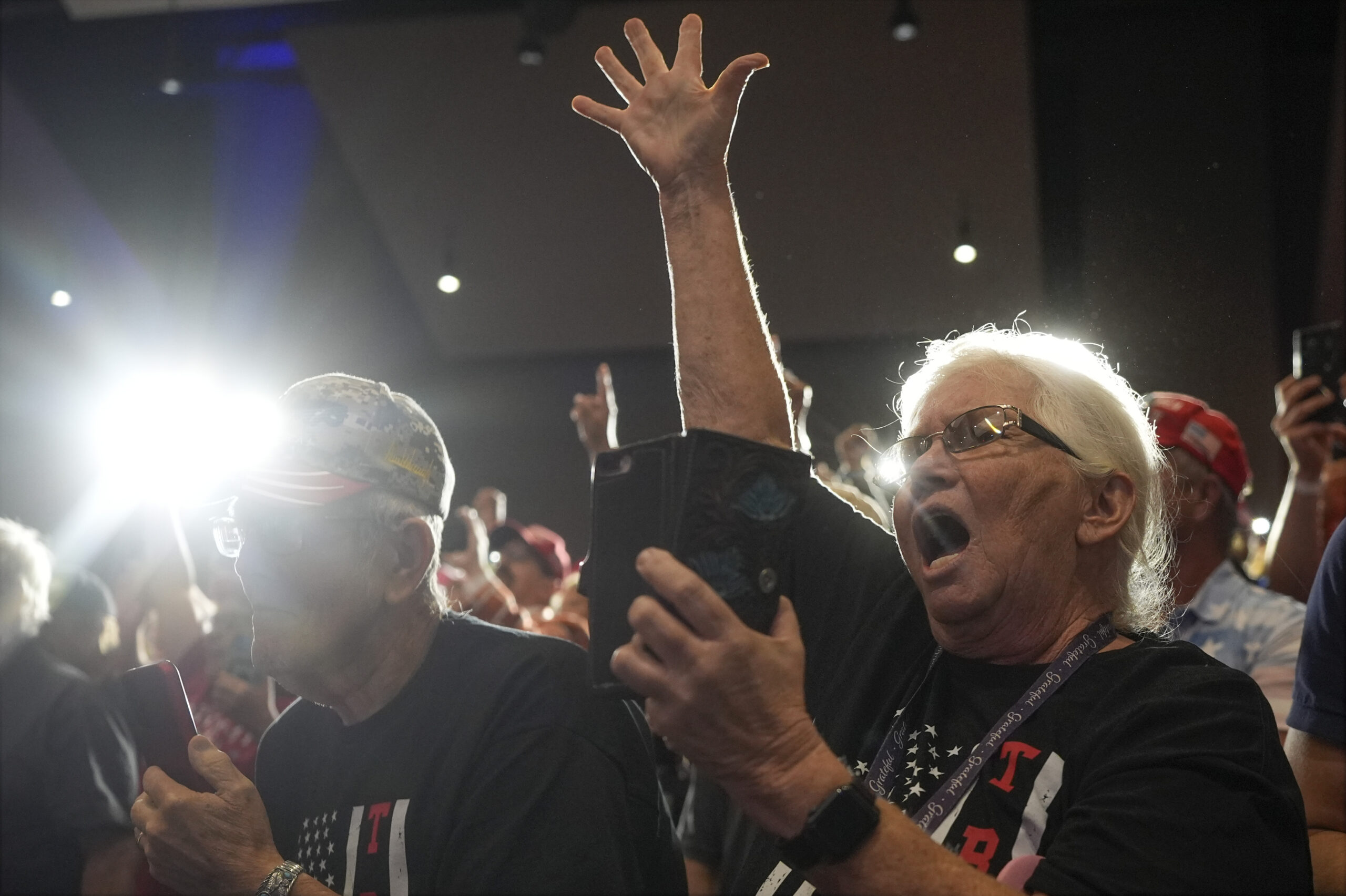
According to Marquette’s polling, 31 percent of Republicans listed immigration as their top issue, behind only the economy. For self-described independent voters, the number was 6 percent. Among Democrats, just 1 percent said it was their top issue.
Another Wisconsinite, Jon Sutton, responded to Trump’s visit by protesting with other Crawford County Democrats. Sutton lives two blocks away from the Prairie Du Chien high school where Trump’s speech took place, and he offered his front lawn as a location for the demonstration.
Sutton said he was disturbed by how the former president was using one criminal case in the small Wisconsin city to demonize a whole group of people.
“It kind of gives a bad, almost a black eye to the town,” Sutton said. “A lot of the the Trump campaign is based on immigration, and what I perceive as as sort of racist and and anti-immigrant sentiments that I just don’t share.”
Editor’s note: WPR’s Joe Schulz contributed reporting.
Wisconsin Public Radio, © Copyright 2025, Board of Regents of the University of Wisconsin System and Wisconsin Educational Communications Board.
